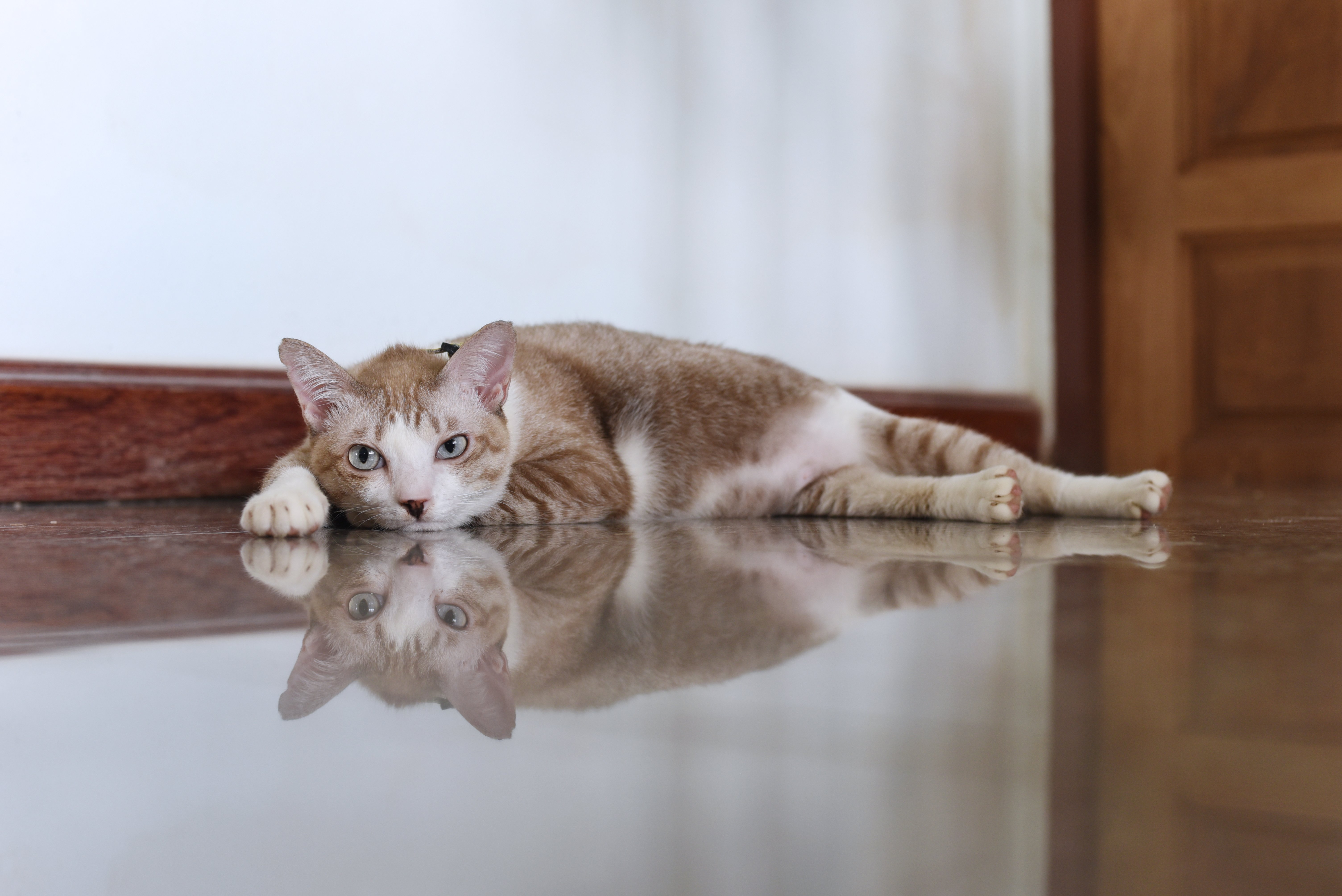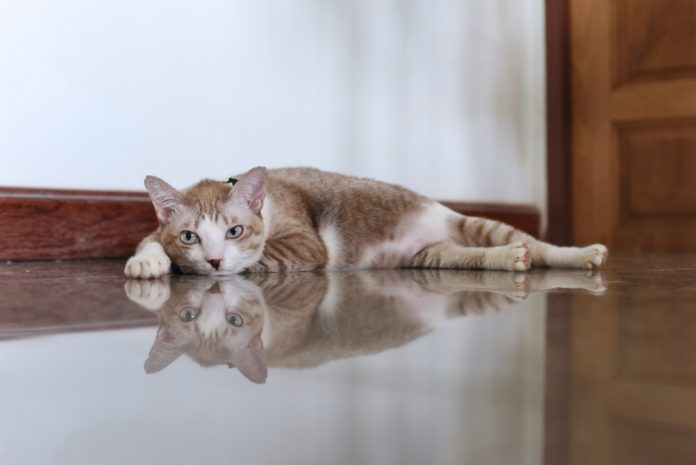
With dramatic advancements in feline veterinary care, our beloved cats are living longer and healthier lives. A cat who lives to be 20 years old is the approximate equivalent of a 96-year-old person. Unfortunately, all cats eventually show signs of aging.
Cognitive dysfunction (like dementia) is a common ailment of the senior cat, although the symptoms can be subtle and may sometimes mimic other illnesses. Up to a third of cats 11 to 14 years old may have cognitive dysfunction. That may rise to 50 percent for cats over 15 years old.
Behavioral Changes
Changes that can indicate dementia are:
-Aggression
-Altered sleep cycles
-Disinterest in food and water
-Disorientation
-Inappropriate elimination
-Irritability
-Loud vocalizing
-Reduced interaction with favorite people or toys
-Wandering
Some of these changes are easy to live with, but others can be dangerous for your cat and frustrating for you.
Rule Out Medical Problems
The first thing to do with all problems is take your cat to your veterinarian for an examination. While there is no specific test for feline cognitive dysfunction, many of the behavioral changes that fall under the umbrella of cognitive dysfunction can be caused by underlying health problems.
Your veterinarian will do a thorough exam, likely including blood work, to rule out other serious problems before diagnosing your cat with cognitive dysfunction. Medical problems that can cause signs that may be confused with dementia include:
–Arthritis may cause a cat to stop playing and snuggling. She may eliminate outside a litter box with sides that are too tall; the sides make climbing in uncomfortable. The cat also may not want to navigate stairs to food and water bowls or a litter box on a separate floor of the house.
-Hyperthyroidism can cause excessive vocalization, particularly at night.
-Hypertension also can cause excessive vocalization along with retinal detachment, which will cause your cat to go blind. Sudden onset blindness will, of course, be accompanied by disorientation and stress.
-Kidney disease can increase urination and thirst. If you aren’t able to keep up with your cat’s new bathroom habits, she may avoid the dirty litter box in favor of other, cleaner spots.
-Urinary tract infections may cause her to be unable to get to a litter box in time or to soil a box more quickly than usual.
-Deafness often results in frequent, loud vocalization.
-Blindness causes disorientation and makes navigating around the house more difficult, including getting to food and water bowls.
-Dental disease can make eating uncomfortable. A painful mouth may cause your cat to be more subdued in general.
-Brain tumors can cause a wide variety of signs, depending on the location of the tumor.
If your cat is diagnosed with any of these conditions, treating that problem may resolve the behavioral issues. But, if she gets a clean bill of health, your veterinarian may suggest cognitive dysfunction as a cause of her changed behavior (see our November 2017 issue for additional information on geriatric cat health at catwatchnewsletter.com).
How to help
Just as is done for humans battling dementia, extra effort to keep your cat’s mind sharp may reduce symptoms of cognitive dysfunction.
Enrichment. New toys, exercise (like chasing a feather on a wand), and teaching tricks are great ways to improve learning and memory. Make a point of regularly engaging your cat’s brain starting from when you first bring her home. If your cat’s brain is in good shape to begin with, she’ll be ahead of the game as she ages.
Steady routine. Cats like schedules. Make a schedule for your cat and stick to it as much as possible. Serve meals at the same time, so that she’ll know when to expect them. If you leave food out for her all the time, plan a couple times to give her a special treat that she can look forward to.
Encourage her to keep a regular sleep schedule as well. If she is napping more frequently during the day, gently wake her up and carry her around petting her or try to get her to play. Preventing too many daytime slumbers will make it easier for her to sleep at night and cut down on the nocturnal wanderings. Note: Younger cats and kittens may sleep 20 hours a day, but adult cats average 14 to 16 hours.
Easy access. Food, water, and litter boxes should be easily accessible for your cat and should always be kept in the same spot. If your cat has difficulty navigating stairs, consider a little ramp for her to use. If she is disoriented or visually impaired, doors and baby gates can keep her confined to a part of the house where she can get to everything she needs and can’t get lost, stuck, or injured.
Supplements. While there isn’t much scientific data or research about supplements for brain health in cats, a diet rich in omega 3 fatty acids, vitamin E, and antioxidants may help support your kitty’s mental health.
Medications. Your veterinarian may prescribe medications for your cat. Selegiline hydrochloride is approved for cognitive dysfunction in dogs, but some veterinarians use it for cats as well. Fluoxetine and other anti-anxiety medications can help to cut down on behavioral changes due to stress and disorientation. Using cat pheromones in your house may help to keep your cat calm. (Note: We would avoid the use of essential oils—see p. 1. Essential oils can slowly poison your cat.)
Be careful with your choices. “There are certain drugs to avoid, such as some pain medications, anesthetic drugs, and perhaps even supplements containing iron,” advises Brian Glenn Collins, DVM, Section Chief of the Community Practice Service at Cornell.
Before adding any supplement purported to help with cognitive dysfunction, discuss the product with your veterinarian. Products like S-Adenosylmethionine (SAM-e), phosphatidylserine, gingko biloba, apoaequorin (which is like the human supplement Prevagen), and resveratrol may only put a hole in your wallet.




